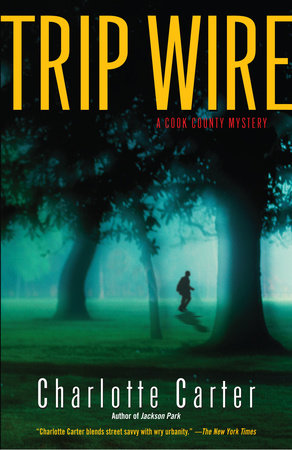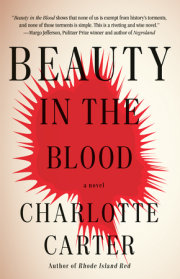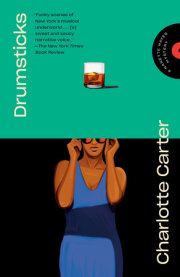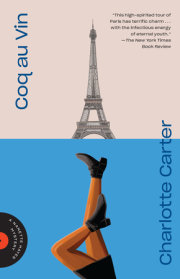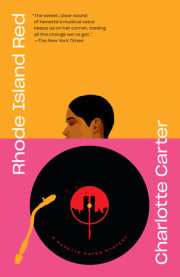CHAPTER ONE
MONDAY
“Hey, Cassandra,” Wilton said in that sleepy voice of his.
“Huh?” I said.
“How much you bet me?”
“About what?”
“I bet you and me are the onliest niggers in Chicago know every song on the Creedence Clearwater album.”
“No bet. I know we are.”
We fell out laughing.
Truth to tell, I had nothing against Creedence and neither did Wilton. But our friend and roommate Dan Zuni, a beautiful Pueblo Indian kid with a mane of coal black hair and the slim-hipped build of a female fashion model, had a psychotic thing for them. Night and day he had Creedence on the record player in his bedroom. Once in a while I had to beg for mercy. He was always nice enough to give it a rest when I complained, but a couple of hours later “Suzie Q” would be blasting again.
Wilton had me laughing so hard my ribs ached. But that wasn’t such a tough assignment. I was stoned—we both were—and just about everything was funny.
We lay side by side on the floor of my room, only a couple of feet away from the new space heater my uncle Woody had paid for. Winter in Chicago is nothing to trifle with. You might think you know about our winters because of that record Lou Rawls had where he referred to the wind whipping off Lake Michigan as the Hawk. Don’t kid yourself. You don’t know. At night my room was like the north face of Everest. But I was low on cash, so Woody sprang for the heater, despite his being none too pleased with me these days.
Uncle Woody loved me, no question. But I had recently left home, moved out of the spacious high-rise apartment in Hyde Park where I had lived with him and my aunt Ivy since I was eleven years old. They were pretty pissed about it.
Maybe it wouldn’t have been such an affront if I’d taken a nice studio apartment in a respectable South Side development like Lake Meadows. Maybe they’d have been able to write it off as an understandable step toward independence. That’s not what I did, though, when I left home.
I moved all the way up to the North Side, to a rambling apartment with sloping floors and niggardly steam heat, where I had anywhere from three to seven roommates, depending on who was sleeping at a lover’s apartment, who was hitchhiking to California, or who was back home in Indiana for some holiday. At the moment we were without any pet critters, though it was just about time for one of our number to find another stray kitten or take in an orphaned parakeet.
Woody and Ivy Lisle are my de facto parents. My mother, Haddy Perry, left me in my grandmother’s care when I was eight, and she’s been in the wind ever since. The years with Grandma Perry were brief but hideous. To put it mildly, we never hit it off. And, in a masterpiece of understatement, let me say I was not a happy child.
As I get older, I try not to blame her so much for her part in my misery. The best I can figure, she and my mother had never been the greatest of pals, and as soon as Mom was of age, she cut herself loose from home and hearth. Then, at just the time in the old lady’s life when child rearing should have been far behind her, she got saddled with a needy youngster—that would be me—subject to bouts of depression, panic, and rage.
Like her husband before her, Grandma was called home, in the Negro parlance, at a fairly young age. My guess is, she had had it up to here and was good and ready to go. At any rate, that’s when her younger sister Ivy took me in.
As for my biological father? You tell me. My family history is lousy with secrets, vague explanations that don’t hold water, and outright lies. The story of how I came into being partakes of every one of those things.
The three years with my weary grandmother at her house on Forest Street, at the heart of the heart of the South Side’s ghetto, are now a blur of loneliness and resentment. Ivy and Woody saved me.
I was spared from the home for wayward juveniles and the welfare rolls, if not from a revolving cast of school bullies who hassled the shit out of me for being teacher’s pet.
Under the fond gaze of Woody and Ivy, my love for reading and excelling at school was rewarded with gift-boxed fountain pens, season subscriptions to the Young People’s Orchestra, and summers at theater arts camp, where I painted flats for Death Takes a Holiday and then wowed them as Berenice in The Member of the Wedding.
And at home I got away with murder: my own television, no bedtime curfew, allowed to drink coffee with my breakfast and mingle with the cocktail party guests, sipping 7-Up from a martini glass and eating myself stupid on deviled shrimp canapés.
So, goody-good little Cassandra, who used to write those prize-winning essays for Negro History Week, joined a hippie commune. Yep, I’m all grown up now, twenty years old, and taking my rightful place as a black freak. With visions of group sex, drug addiction, and me never again folding my dinner napkin, my very proper aunt Ivy had near about fainted when I broke the news.
I took a big pull from the joint I was sharing with Wilton and passed it over to him—tried to, anyway. He was lost in his own thoughts now, and didn’t notice me until I made a fist and knocked gently on his forehead.
Those limpid eyes of his seemed to shine love out at me.
My friend Wilton’s upbringing, despite the fractured grammar he affected, had been even more rarefied than mine. Both his parents were of the black professional class, mother a pediatric surgeon and father a big-bucks attorney. Wilton was born into the high bourgeoisie, as his parents and their parents before them had been. Fact, going back to the Reconstruction, his family tree hung heavy with scientists, teachers, and industrialists.
In keeping with the cloud cover over my family history, I really don’t know where my aunt Ivy’s refinement or my uncle Woody’s money came from.
I was grateful to Woody and Ivy for converting my life from shit to sugar. I tried never to hurt or disappoint them, and I’d been the best girl I could be for a long time.
If you asked them, they’d likely say my days as an obedient child had ended without notice some time during the month of April 1968. I guess they’d be right. Something had happened to me that record-setting, murderous spring, with its weather from heaven and headlines from hell. You ticked off the horrors as spring folded into summer: King murdered; urban riots; the war inflating like a corpse in muddy water; RFK murdered; students assaulted and killed all over the globe.
And then there was the convention, Chicago’s local sideshow that turned into a world event and made Richard J. Daley a bigger star than Jane Fonda.
But I had my own list of upheavals, events in my personal life that shook me down to my shoes, things that were changing me, shaping me, making me for better or worse into someone else—
—Number one, I’d been witness to an ugly murder, and very nearly a second victim. Woody’s nephew had been knifed in the old neighborhood, just minutes from my grandmother’s Forest Street house, and I had watched him die.
—Then, too, a beloved friend had disappeared on me, doing nothing less than altering the course of my life along with his.
—Another change revolved around loss, too, but it had nothing to do with war or death. Quite the opposite. Contrary to my long-held belief that I’d go to my grave without ever getting laid, I finally did. A fellow named Melvin had deflowered me under some pretty harrowing circumstances. But that didn’t stop me from loving it.
Melvin was long gone. But openhearted, decent, handsome, ironic Wilton Mobley truly liked and understood me, wanted to be my friend. The feeling was ever so mutual. When he invited me to move in, it looked as though I’d fallen into a honeypot. It just seemed natural that Wilt and I, two Afro-American freaks, would get together, maybe even build some kind of life that would outlast our time at the commune.
My luck is strange, though. I have this giveth-and-taketh-away thing going with the gods. Wilton never became my lover. Instead he was devoted to a lissome white girl named Mia, whose complexion was something out of a Vermeer and whose disposition and heart were so lovely, you almost expected to see sparrows tweeting in formation around her head. Mia Boone was the mothering, pie-baking, herb-gardening, homemade-soap, meat’s- no-good-for-you, mantra-chanting, candle-burning heart of the commune, and she and Wilton were so much in love it made me feel dirty to imagine either of them with another partner.
As I was doing most days as of late, I had blown off my classes, telling myself I’d read like crazy long into the night and be caught up with everything by the end of the week. And for the nonce, I was whiling away the afternoon with Wilton, smoking his excellent weed. The new heater was doing its thing and we were doing ours.
Then, through my laughter, I heard Mia call from the kitchen, “Lunch, guys!”
At the sound of her voice, Wilton’s ears pricked up like a devoted Great Dane hearing his master’s step on the gravel path.
“You better get a move on, Wretched, or there won’t be any delicious vegetarian tacos left,” I said.
I started calling him Wretched because it was taking him so goddamn long to finish reading Fanon’s book. The dog-eared paperback had been gathering dust on the TV table for months. After a while, he began calling me Wretched, too. It was a bit of conspiratorial silliness. But I took a childish thrill in the easy, telegraphic way Wilt and I communicated. I knew it probably made the others feel excluded sometimes. And I knew it wasn’t worthy of me. But it was fun.
I heard a child’s voice out in the hallway, too. It belonged to little Jordan. Who rarely missed a meal at our place. The ten-year-old son of a junkie couple up the block, he spent the bulk of his time in our apartment. In the journal I was keeping the first few weeks I lived here, I referred to him as the feral boy. That sounds snotty and heartless. I didn’t mean it that way at all. I actually kind of like the boy, and God knows I feel sorry for him. But until I got to know him a little better, I was almost afraid he would bite me if I approached him. That’s how bizarre he was.
Jordan had attached himself to Mia because she was the source of food. He bonded with Cliff Tobin, another commune resident, because Cliff was so generous with his time, attention, and empathy. He bought roller skates and ice cream cones for the kid, watched over him as he slept on the cot in Cliff’s room, took him hiking, taught him how to swim, and generally placed himself between Jordan and the nasty realities of the boy’s parents’ life. In return, Jordan stood ready to lay down his little life for his ultimate big brother. Understandable. In his place, I’d have done the same.
I heard dishes clanging dimly in the massive kitchen, conversation, laughter. I remained where I was, on the makeshift hearth before the heater. I was thinking back on the weekend we’d all spent at the Wisconsin farmhouse owned by the parents of one of our roommates, Annabeth Riegel.
Oh, we had a great time on those enchanted walks in our clunky boots through the muddy fields, tripping like mad on the acid one of our number had supplied. And we had gorged on Mia’s gingerbread and mountains of her hand-churned ice cream. But I remembered feeling weird as I stood alone watching the sun rise from the attic window. Not lonely. Not envious of the ones who were coupling downstairs. Just a bit ill at ease.
Copyright © 2005 by Charlotte Carter. All rights reserved. No part of this excerpt may be reproduced or reprinted without permission in writing from the publisher.

